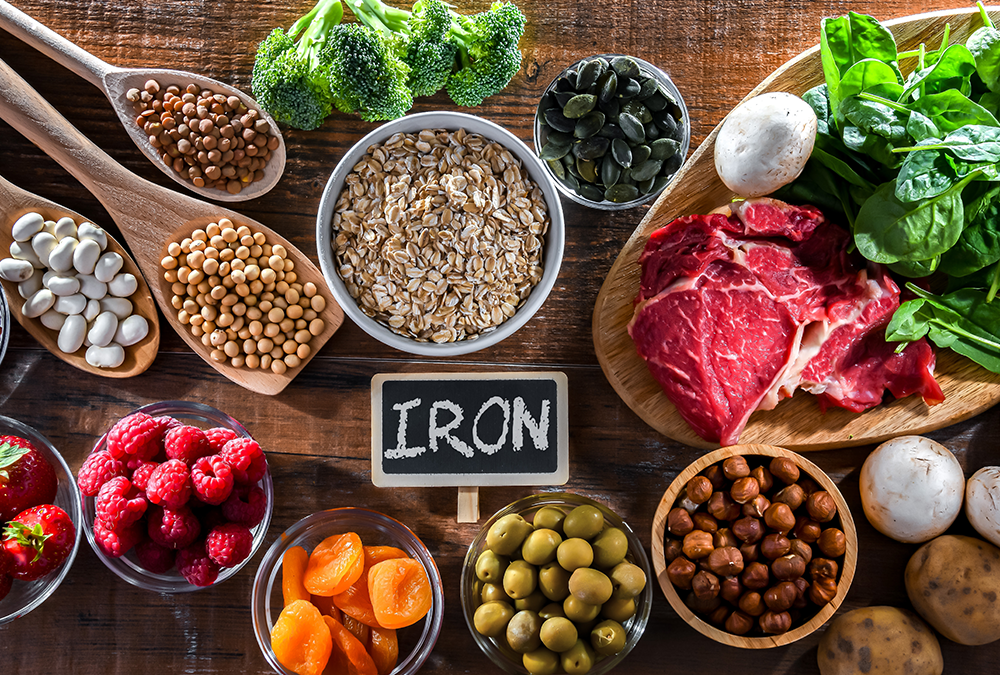Maintaining healthy iron levels is essential for overall well-being, and a diet rich in iron is a key strategy for preventing iron deficiency. However, there are situations where dietary changes alone are not sufficient, particularly in cases of severe deficiency or when the body struggles to absorb iron effectively. Understanding the role of iron-rich foods and knowing when an iron infusion might be necessary can help you make informed decisions about your health.
Iron-Rich Foods: The Foundation of Iron Intake
Iron is found in two primary forms in the diet: heme iron and non-heme iron.
Heme iron is found in animal-based foods, including red meat, poultry, and fish. This form of iron is more easily absorbed by the body, making it a highly effective source of dietary iron. For those who include animal products in their diet, consuming heme iron-rich foods is one of the most efficient ways to maintain adequate iron levels.
Non-heme iron is found in plant-based foods such as lentils, beans, spinach, and fortified cereals. While non-heme iron is beneficial, it is less readily absorbed by the body compared to heme iron. Factors such as the presence of phytates, polyphenols, and calcium can inhibit the absorption of non-heme iron. However, pairing non-heme iron foods with vitamin C-rich foods (like citrus fruits or bell peppers) can enhance absorption, making it a valuable part of a balanced diet, especially for vegetarians and vegans.
When Dietary Changes Aren’t Enough
Despite the benefits of an iron-rich diet, there are scenarios where dietary modifications alone may not suffice to correct iron deficiency.
Malabsorption Issues: Certain medical conditions can impair the body’s ability to absorb iron from food, making it difficult to maintain healthy iron levels through diet alone. Conditions such as celiac disease, Crohn’s disease, and ulcerative colitis can damage the lining of the intestines, where iron absorption occurs. Additionally, surgeries that alter the gastrointestinal tract can significantly reduce iron absorption. For individuals with these conditions, even a diet rich in iron may not prevent deficiency and alternative treatments like iron infusions may be necessary.
Severe Deficiency: In cases of severe iron deficiency where iron levels are critically low, dietary changes alone may not be sufficient to restore iron levels quickly enough. Severe deficiency can lead to symptoms such as extreme fatigue, shortness of breath, dizziness, and even heart problems if left untreated. In these situations, an iron infusion provides a rapid and effective way to replenish iron stores, bypassing the digestive system and delivering iron directly into the bloodstream.
Intolerance to Oral Supplements: For many people, oral iron supplements are the first line of defence against iron deficiency. However, these supplements can cause gastrointestinal side effects, including nausea, constipation, and stomach cramps. These side effects can be severe enough to discourage continued use of the supplements, leaving the deficiency unaddressed. For those who cannot tolerate oral iron, or for when supplements have not been effective, iron infusions offer a viable alternative that avoids gastrointestinal issues and ensures adequate iron levels are restored.
Iron Infusion: Iron infusions are a medical treatment designed to deliver iron directly into the bloodstream, bypassing the digestive system entirely. This method is particularly useful for individuals who cannot absorb iron effectively through the gut or who require a quick and substantial increase in iron levels due to severe deficiency. Iron infusions are administered in a controlled medical setting, ensuring that the treatment is safe and effective. Iron infusions can quickly restore iron levels, providing relief from symptoms of deficiency and reducing the risk of complications.
Avoidance of Gastrointestinal Side Effects: By delivering iron directly into the bloodstream, infusions bypass the digestive system, eliminating the gastrointestinal side effects commonly associated with oral iron supplements.
Long-Term Efficacy: Depending on the severity of the deficiency and the individual’s response to treatment, iron infusions can provide long-lasting improvements, often requiring fewer treatments than oral supplements.
While a diet rich in iron is essential for maintaining healthy iron levels, it’s not always enough, especially in cases of severe deficiency or when the body cannot absorb iron effectively. If you suspect you may be experiencing iron deficiency, particularly if dietary adjustments and supplements haven’t improved your symptoms, consult with your GP to explore the best treatment options for your needs. Iron infusions may provide the targeted solution required to restore your energy, cognitive function, and overall health.
